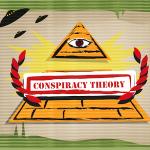Just two days ago, Dr.
Monsanto
In his Farewell Address, President Eisenhower warned of the military-industrial complex, a partnership between the military and defense industry that was financially incentivized to promote war over peace.
Spoiler alert – this is not a discussion of whether anyone should be held liable for Roundup or opioids.
Social media in general, and Twitter in particular, is an absolute sewer pipe.
Jurors in California have awarded $289 million to a man who claimed that his cancer was due to Monsanto’s herbicide glyphosate, even though that is biologically impossible. Even the judge acknowledged that there was no evidence of harm.
Good science journalism is hard to find. In a world of fake news, the public needs trusted guides to help them understand complex issues.
Last year, Bayer announced its intention to purchase (in cash!) Monsanto.
RT is the Kremlin's propaganda outlet in the United States and around the world. As such, it broadcasts "news" (mostly, the fake variety) that advances the agenda of Russian President Vladimir Putin.
Of the many lies spread about Monsanto over the years, perhaps none is so malevolent as the claim that the seed giant is to blame for farmer suicides in India.
The international protest "March Against Monsanto" (MAM) was never based on truth. The movement perpetuated myths about GMOs to demonize a company that has a really bad PR department.












